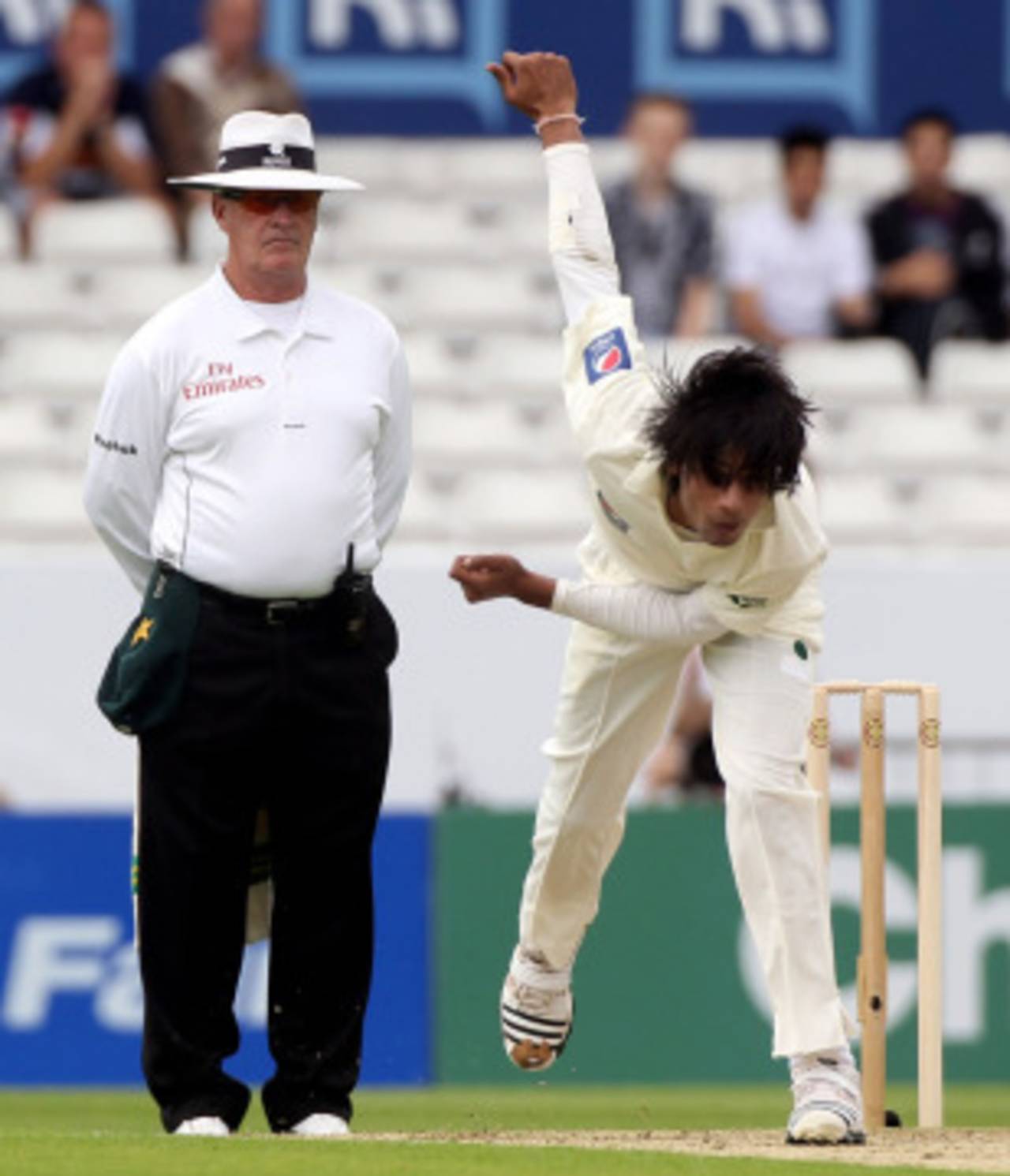Koertzen calls for UDRS in every Test
Brydon Coverdale
28-Jul-2010

The UDRS was not used in Rudi Koertzen's final Test, between Pakistan and Australia at Headingley • Getty Images
The newly-retired umpire Rudi Koertzen has called for the decision review system to be included in every Test series after he bowed out with a tour that did not feature the UDRS. Koertzen is remaining involved in the game as the ICC's new Regional Umpires' Performance Manager for the Africa region, and he will help mentor young umpires coming through the ranks.
One of the problems for the next generation of officials will be handling the added pressure of constant replays that can show the most miniscule error in their decisions. Technologies like HawkEye and Hot Spot can assist the decision-making process, but the cost of the system is a sticking point for some home boards and broadcasters, who determine whether the UDRS is used in a series.
Koertzen, who has umpired more Tests than any other man besides Steve Bucknor, ended his career on the weekend with the final Test of the Pakistan-Australia contest in Leeds. Decision reviews were not used on that tour and are not being employed in the ongoing Sri Lanka-India series, which Koertzen believes adds undue pressure for umpires.
"You should have it in every single series," Koertzen told Cricinfo. "Somehow, somebody has to come up with a deal and say we will support this, we will sponsor it. It's no use having it when South Africa play Australia or in the Ashes, and then you have for example Sri Lanka playing Bangladesh and you can't have it.
"I don't think that's fair on the umpires because in one Test you get some sort of assistance and in the other one you're on your own. It's only going to make it harder for the guys if it goes that route."
Although Koertzen and his colleague Ian Gould largely had a good series in England, there were still occasional decisions that could have been overturned had the players had the right of review. Koertzen said standing in the middle of a venue such as Lord's, having no access to TV while the world watched slow-motion replays, was a difficult task.
"You make a decision and you watch the [corporate] suites - there are maybe a hundred suites," Koertzen said. "Everyone sitting there jumps up and goes to look at the monitor inside their suite to see if you've made the right decision or not. That is sad because it puts a hell of a lot of pressure on you. At the end of the day you're the only guy who knows if you did your best or not.
"With the technology, millions of people can see if you got it wrong. You stand there and think you made a good decision and then you hear a few boos from upstairs and you think, maybe I did get that wrong. You won't know until you walk off the field and you have a chat with the third umpire and the match referee."
The ICC is keen for the review system to be rolled out in every Test, and it will be in operation for the England-Pakistan series that begins on Thursday. However long it takes for the UDRS to be fully incorporated at the elite level, one thing that is not likely to change is the process of players requesting reviews.
Umpires have the power to call for replays on line-calls, such as run-outs, or to help adjudicate on catches low to the ground. But handing control of the UDRS to the men standing in the middle is not on the agenda for the ICC, and Koertzen is content for the players to be given an opportunity to have a decision reexamined.
"I don't think it will lower the dignity of the umpire," Koertzen said. "I think that's just an excuse from some guys that maybe don't want the players to show the rest of the world that he got it wrong. You might fall in the trap where if you're weak, you might go upstairs for every single decision you make."
One of the tasks for Koertzen in his new regional role in Africa, where he has replaced the Zimbabwean Ian Robinson, will be to help young umpires improve their skills to allow them to move from lower levels to the international stage. That involves managing a match as much as making decisions, and Koertzen hopes to pass on some of the lessons he learnt during his two decades on the international circuit.
"It's not just about going out there and umpiring, putting money in your pocket," he said. "It's about respect and all those kind of things, which I hopefully can help these youngsters with. When I started it wasn't that hard. We had TV but they never scrutinised you as much as these days. It's going to be hard on these boys. They've got to understand it's a professional game."
Brydon Coverdale is a staff writer at Cricinfo